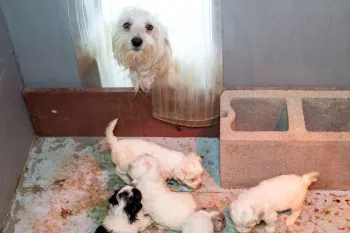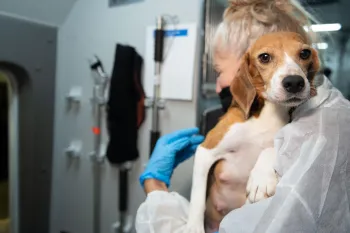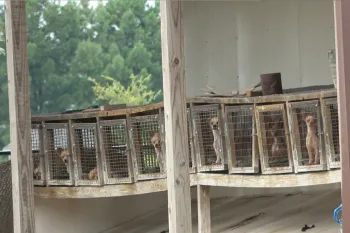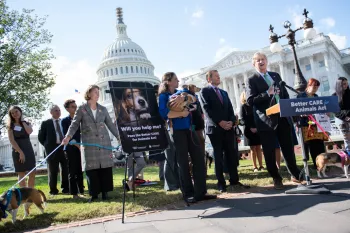The USDA's Office of Inspector General has released a highly critical audit of the agency’s performance record in dog breeder inspection actions under the Animal Welfare Act. The report concludes that the USDA’s approach to dog breeder inspections fails to adequately find or address violations in a timely manner. As a result, dog breeders have continued to violate the law, posing “a threat to the well-being and safety of their dogs, leaving them vulnerable to neglect, mistreatment, and suffering.”
Of course, that language is shocking—but it is not surprising. The problems identified in the audit, which several members of Congress requested in 2021, are long-standing. They have carried over again and again, from one administration to another, from one Secretary of Agriculture to another, from one president to another.
It is easy enough for any incoming administration to lay the blame on its predecessor, but in this case, there’s an inescapable shared blame, and it falls upon every one of the individuals who have led the USDA in the 21st century. Puppy mill inspections, like many other animal-related inspections within the agency’s jurisdiction, have for the most part failed to improve animal welfare outcomes.
A central premise of the audit is that USDA’s inspection process is not protecting dogs in dog breeding facilities. The report determined that 80% of the dog breeders inspected during the audit period had not fully corrected situations involving violations such as excessive flies/feces, no water provided, matted hair, untreated dental disease, enclosures with sharp edges/damaged floors, and untreated eye problems.
Another of the audit’s conclusions is that USDA personnel with the Animal Plant and Health Inspection Service did not conduct their inspections or move to address specific complaints about dog dealers in a timely manner. APHIS treated 69% of cases involving complaints as matters of “lower priority,” and failed to devote sufficient attention and scrutiny to inspection sites presenting higher risks of animal welfare concerns.
The audit also found that inspectors did not always look for or assess all relevant on-site concerns at facilities they visited, things like food storage, condition and state of enclosures and the handling of medications. In addition, inspectors neglected to report substantial violations—in one instance, a breeder was not cited after a dog died from injuries left untreated after being sustained in a fight with an incompatible cage mate.
No rational person would look at APHIS inspection requirements and call them onerous. They exist for good reasons, and they are intended to provide animals with some degree of protection and attention to their health and welfare. This is part of our duty of care toward animals who are at our mercy.
The timing of the audit’s release is promising, as we anticipate the reintroduction of both the Better CARE for Animals Act and the Puppy Protection Act soon. These two measures go right to the heart of our responsibility toward animals, and both garnered over 200 co-sponsors and solid bipartisan support in the House in the last session of Congress. The Better CARE for Animals Act also had a strong showing of bipartisan support in the U.S. Senate with nearly 40 cosponsors.
This report, along with our other work to raise awareness of the plight of animals in puppy mills, laboratory animal facilities, captive wildlife display operations and other sites, gives us a chance to gather even stronger levels of support this time around.
The audit also gives Secretary of Agriculture Brooke Rollins and Attorney General Pam Bondi a chance to take up this concern as their own, commit to strong interagency collaboration between the Department of Agriculture and the Department of Justice, and to put their shoulders to the wheel.
The U.S. Congress should do the same for both bills, and especially the Better CARE for Animals Act, designed to enhance collaboration between these two agencies, which are among the most consequential of all federal departments when it comes to the welfare of animals.
The Trump administration, having released this audit, has placed the burden of taking purposeful action directly upon itself. There is a persistent gap between what animals covered under federal laws deserve and the actual protection they receive. This report makes it plain that strong oversight and enforcement are the only meaningful deterrents to violating the law. And we’re going to make sure that it’s seen by every legislator in Congress.
Sara Amundson is president of Humane World Action Fund.




